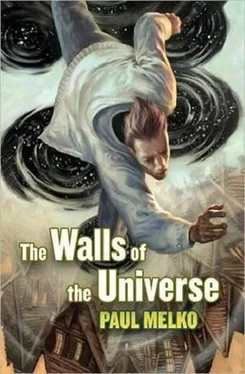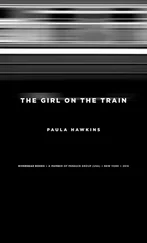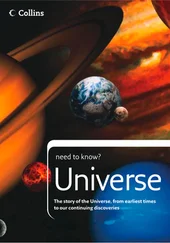“It’s like I’m not even a part of the important stuff in your life,” she said. “It’s like you keep everyone at arm’s length.”
“That’s not true!”
“Then what’s in the box?”
John didn’t answer.
“What?”
“It’s not important,” he said. “Casey, I’m new at this. I’ve never had… I’ve never been this close before.”
“You’re not that close now!” she cried. Tears were falling down her face.
“I’ve never done this before!” John replied. “I don’t want to hurt you or make you angry or hide important things from you. But-”
“But you do.”
“Casey, don’t be unfair to me!”
“Me unfair to you?” She forced a sharp laugh. “I’m your girlfriend, remember? We’re supposed to share things. Be together. For holidays and things.”
“Fine, I’ll go to your parents’ for Thanksgiving.”
“Too late. The offer is null and void!”
“Don’t be petty!”
“Don’t cave just because I cried. You should have wanted to come.” Her cheeks were bright red.
“Stop playing games!” John cried. “Stop pressuring me! I have a say in what we do, don’t I? If I don’t want to go to Thanksgiving dinner, I shouldn’t have to!” A point that had been inconsequential was now a bone of contention.
“You think-” She stopped herself. “John. It doesn’t matter. You don’t have to come to Thanksgiving.”
She turned away, stepping over the stream into the open.
“Casey.”
She walked down the path parallel to the stream.
“Casey.” John ran after her. He grabbed her arm. “This is silly,” he said. “I want to come to your parents’ house. I do. I don’t know why I said I didn’t. It’s just stupid of me.”
She wiped snot from her nose on her sleeve. “Yeah, that’s true.”
“You didn’t have to agree so fast,” John said with a smile.
“I think I did.”
John slipped his hand in hers and they walked the length of the trail in silence.
The prototype was ready three weeks later, a complete head-to-head pinball game, with a digital scoring system, various bumpers, and six sets of flippers per player.
John won the first ten matches, mostly because he knew how to work the flippers while the others couldn’t get the hang of catching and holding the ball. But Henry learned fast, and he was the first to beat John.
“And there was much rejoicing,” Grace said when Henry scored the game point.
“Whose side are you on?”
“Not yours.”
The flurry of bells and screaming could be heard throughout the lab, and before long a grad student wandered by and asked to join in. He dropped in a quarter, and when John heard the clink of the coin in the money bucket he caught Grace’s eye and smiled.
Henry kicked his ass in two minutes.
The next night they had ten people there. The third night it was standing room only in the lab. That weekend they had the first tournament. Henry won against John in the finals, ten to nine.
It was a smash success. So much so that John decided they would try the next step. He should have known better; he should have remembered his ultimate goal was to understand the device. Instead he was caught up in the idea of the pinball machine and didn’t realize what he was about to do.
Seeing the bars in the light of the day was like seeing a news anchor without his or her makeup and cue cards. The places smelled of stale beer and echoed their footsteps as they entered. John and Casey stopped in a small bar called Woodman’s not far from campus, which had a video game and a couple of pool tables. John and Casey had been there once. John was always surprised not to be carded going into bars, but the drinking age in this universe was eighteen.
“We’re looking for the manager.”
A guy was hauling a keg of beer up a conveyor belt from the basement through a hatch in the floor. He said, “In the office. Past the bathrooms.”
Casey followed John down the hall to a door marked: “Authorized Persons.” John knocked and a rough voice answered, “What do ya want?”
John pushed the door open onto a cramped office. A balding man sat behind a desk, smoking a cigarette.
He looked up at them and said, “I ain’t sponsoring any homecoming float.”
“That’s not why we’re here,” John said.
“Good thing. What then?”
“We have a game. We’d like to put it in your bar.”
The guy looked at them, then said, “I don’t want any trouble, so I don’t run any slots here.”
“It’s not gambling,” John said. “It’s like a video game, but mechanical, sort of like pool.”
“A game.” He pulled a long puff on his cigarette. “You got a license from the city?”
“No.”
“You work with the gaming union?”
“No.”
“Then I don’t think so.”
“But…”
“I’m sure it’s great, kids, but, one, I don’t have the room, and, two, I don’t have the time for the trouble it’ll cause me.” He lifted his hand, pointing to the door. “Thanks for asking.”
John turned to go, but Casey said, “We made fifty bucks in one night, and that was when it was in a lab on campus.”
“Fifty bucks?”
“In quarters,” she said.
“My jukebox makes seven dollars a night. How could you make fifty? You’re shitting me.”
“You want to see it?” Casey asked.
“You got it open to the public tonight?” he asked.
“A small crowd,” John said. “We can’t keep it where it is.”
The man nodded. “I’ll stop by.”
Outside on the sidewalk, John said, “You did good, Casey.”
She smiled and said, “I know.”
The lab bay was packed and John was worried that it would attract campus security, but it didn’t. And the bar owner finally showed up, wading through the throng.
“Ray Paquelli,” he said, offering his hand to John.
“John Wilson.”
Ray looked around, counting the people. He didn’t look too closely at the game, and John suspected he didn’t care.
“How long is a game?”
“Three minutes, seven max.”
“How much per game?”
“Fifty cents. They play to ten.”
“What kind of deal you want?”
“We split the money fifty-fifty.”
Ray nodded. “You’ll need a license from the city.”
“I’ve already got the paperwork.”
“Deal.”
They shook.
John found himself thinking more and more about the antimatter source in the device. Somewhere within the device was a pinpoint of gamma radiation, perhaps used to power it. He didn’t have the equipment to take an X-ray of it, and at first he had worried that an X-ray might harm the device. But he knew that a tomogram of the interior of an object could be taken by using a point source passed through the device at various angles. The images of the sections were put back together to make the tomogram. Why couldn’t he use the source within the device as the source for the tomogram? Because he had not the first clue how to do it. He did know one grad student who might know.
When John asked Alex Cheminov about his idea to use tomography for a special project, Alex listened emotionlessly, his hands in the pockets of his tattered jeans, then said, “You’ll need collimated beam.”
“Why?”
“You’ve got a point source, right?” He held up a pencil. “Eraser is source. Radiation comes out of source in all directions isotropicly, decreases with one over r-squared. Further you get from source, more scatter your detector picks up from gammas that don’t come directly from source. Collimator blocks those scattered gammas, reduces noise. You’ll get a better image. Clearer. I worked on same in Russia.”
Читать дальше












